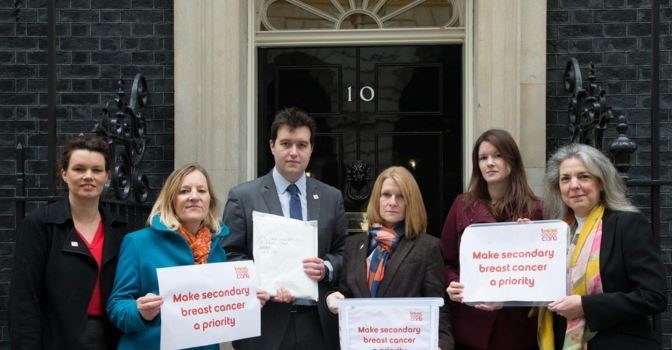At the beginning of December last year, we went to Downing Street to deliver our petition on secondary breast cancer.

At the beginning of December last year a group of Breast Cancer Care staff and volunteers went to Downing Street to deliver our petition on secondary breast cancer (pictured).
The petition was signed by 12,013 people and called on the UK and devolved governments to make secondary breast cancer a priority and improve care and support for people living with the disease.
Minister replies
We have now received a response from Jane Ellison MP the Parliamentary Under Secretary of State for Public Health and the government minister with responsibility for cancer.
In her letter the Minister recognises that more needs to be done on secondary breast cancer including on a number of areas on which we've campaigned recently.
Recognising the issues
She begins by writing:
I appreciate your concerns. We know that women should have access to the highest quality of care and treatment.
We have regularly campaigned on the need for consistent and robust collection of data on secondary breast cancer so that the NHS can plan services better to meet the needs of people living with the disease. It is encouraging that this point was recognised in the letter:
To improve the diagnosis and treatment of women with secondary breast cancer we need to ensure that we have good data about those affected.
Jane Ellison also remarked on the need to improve the care that people with secondary breast cancer receive, saying:
[W]e do know that patients with secondary cancer or recurrence of cancer have a worse experience and are less likely to have a clinical nurse specialist.
Finally, the letter points to a recent debate in Parliament that discussed secondary breast cancer.
Overall the response from the government is positive with a recognition that more can and should be done to support people living with secondary breast cancer.
It is clear that our petition has helped keep this issue on the government’s agenda. We'll continue to campaign for change so that care is improved.